Rocco Forte Hotel heirs Lydia, Irene and Charles Forte on stepping into their father’s legacy
As Rocco Forte Hotels rings in its 25th anniversary, the next generation is making its mark, building on the style cred their father, Sir Rocco Forte, pioneered.
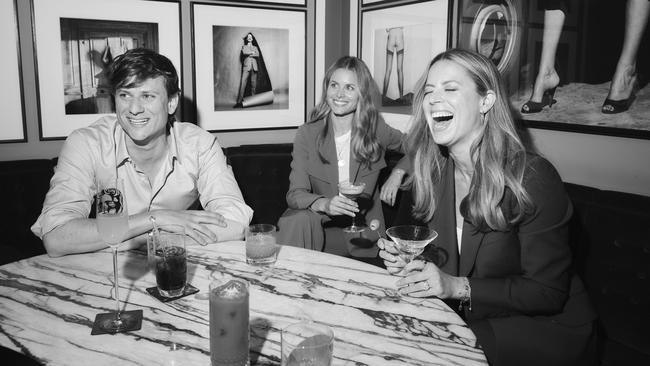
It’s 10:45pm on a Thursday in the Drawing Room of Brown’s Hotel in London. A celebrated afternoon tea venue, the space is usually fairly empty by this late hour.
But from the hotel’s entrance I can already hear a lively buzz; people – quite a lot of them, from the sound of it – seem to be having a good time in there. Walking in confirms it: the lights are low, a 1970s West African track thumps on the sound system, and tables are packed.
Waiters move nimbly around with trays of eggs and caviar soldiers, tureens of velvety tomato soup, bowls of thick-cut chips. Another circulates with a bar trolley, from which bull shots and champagne are flowing.
Here and there backgammon boards are open; dice snap like castanets, and a triumphant hoot sounds above the din. Everyone is impeccably turned out, alarmingly attractive, and on their way to getting a little loose.
As I join my friend at her corner table, she observes that we’re the oldest people in the room by at least 15 years.
The evening was a test-run for The Supper Club, conceived by 35-year-old Lydia Forte, group director of food and beverage at Rocco Forte Hotels and the eldest daughter of its founder, Sir Rocco Forte.
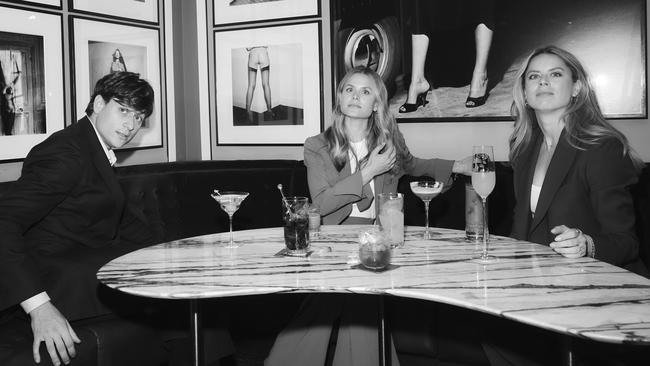
It’s slated to launch fully on Thursdays and Fridays next January; the idea is to marry old-school English dishes and classic English drinks with a late-night ambience, for something like a sumptuous but very comfortable members’ club, minus the membership part. Lydia was present, with her Greek husband; so were her siblings Irene (34), a wellness powerhouse who curates the RFH offering, and Charles (29), who is RFH’s international development manager (the groovy playlist was his, it turned out).
Many of the guests were friends of theirs, which is to say a representative cross-section of 21st-century Bright Young Things. But nobody was faking the rollicking good time as a favour to Lydia. She may be the boss’s daughter but she also clearly knows what she’s doing: the Supper Club was a vibe.
This is a significant year for Rocco Forte Hotels; it marks the 25th anniversary of the company founded by Sir Rocco and his sister, Olga Polizzi, who is its design director.
Both grew up professionally in Trusthouse Forte (later the Forte Group), whose roots stretch back to 1911 when the first Rocco Forte – their grandfather – emigrated from southern Italy to Scotland and opened a small café called The Savoy. Today, the RFH collection comprises 14 properties across Europe and the UK, with several more in the pipeline; its hotels in Italy in particular are permanent fixtures on World’s Best lists.
“My family,” Sir Rocco once said to me over lunch, with quintessential English understatement, “has got to know its way round hospitality.”
This rings true for the next generation too. They bring dynamism, their own connections, and fresh perspectives, but they also respect traditions learned as much in famiglia as in the workplace: a welcome that privileges warmth over formality; beautiful but unfussy food made with the finest ingredients; and the importance of cultivating a sense of place – building the DNA of the locale, whether urban, coastal or countryside, into the Rocco Forte experience.
Take the Supper Club. “It’s all about comfort that’s quintessentially British,” Lydia says.
“We’ve remade the room so it’s super cosy; the food is basically nursery food done extremely well.” But the context is modern: “That idea of hybrid spaces, where the whole ground floor of a hotel has a certain energy and you can get an early- or late-night drink and snack if a full meal is too involved: that’s very in parallel with where we want to take the brand. The appeal of what you want in the moment; not overwrought, not too much, just very good.”
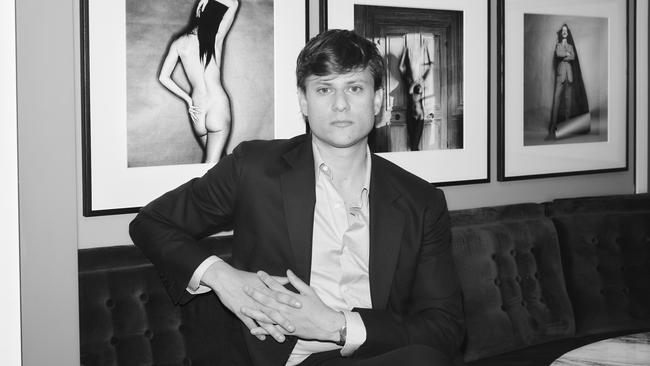
Lydia’s early professional arc saw her learning from some of England’s F&B giants, among them Mark Hix and Jeremy King, before joining the family company.
But like her sister and brother, she cites growing up with two sets of Italian grandparents (the siblings’ mother, Aliai Ricci, is Roman by birth) as one of her biggest influences.
“They really cared about the food and the welcome. At Sunday lunch it was always the lot of us; there would be a huge table, at least 20, and my grandmother always oversaw what came out of the kitchen.” Christmas, she recalls, was the same ritual throughout her childhood: carols, cocktails, and arancini with tomato sauce.
As having wholesome local ingredients mattered to the Fortes growing up, so it matters in the hotels today.
Food and drink are hospitality’s great storytellers, Lydia notes; they are connectors to place, in ways that guests pick up on. It’s why the eggs served at the Supper Club are Burford Browns; it’s why the salmon at The Balmoral in Edinburgh is smoked in house, and the fagioli in the Tuscan bean soup at Irene, the flagship restaurant at The Savoy in Florence, come from a biodynamic farm in nearby Valdarno.
For The Carlton, Milan – formerly the Baglioni Carlton, it will debut in 2023 after a RFH re-flagging and total overhaul – she’s collaborating closely with the company’s consulting chef, Fulvio Pierangelini, and Salvatore Calabrese (a progenitor of the famous Dukes Bar martini, and now the RFH drinks consigliere) to kick things up a notch.
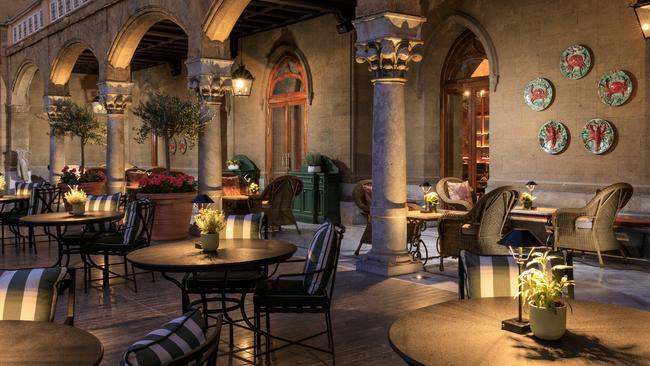
“We want The Carlton to feel like it’s a bar and restaurants with rooms, a place that’s really calibrated to the locals,” Lydia says. The F&B will extend into a new courtyard, and connect directly to the Via Spiga via a café-patisserie and a florist.
“The bar will be classic, with a Milanese focus – again, the easy things you want to eat. For the restaurant, we’re leaning towards a crudo concept – a bit like an Italian version of the Zuma experience. Above all, we want it to feel like part of the fabric of the city: buzzy, youthful, lively. Like Brown’s, in that way, but totally of Milan.”
After a post-graduation stint at a private equity firm, Charles joined the company’s development team in 2016.
His first mandates have been some of the company’s most exciting: besides the Carlton, there was the Hotel de la Ville in Rome, the Villa Igiea in Palermo, and the opening of Rocco Forte House, the brand’s first serviced apartments, also in Rome.
The Houses – more are in the pipeline – are his pet project: “We were seeing all these buildings that were too small to work as hotels; just 2000 or 2500sq m, but in these amazing locations. It couples with the growth in demand for luxury serviced apartments, and the little supply there. We’re a lease operator, so it makes sense for us – the [local] hotel absorbs a lot of the cost so we can make competitive offers.”
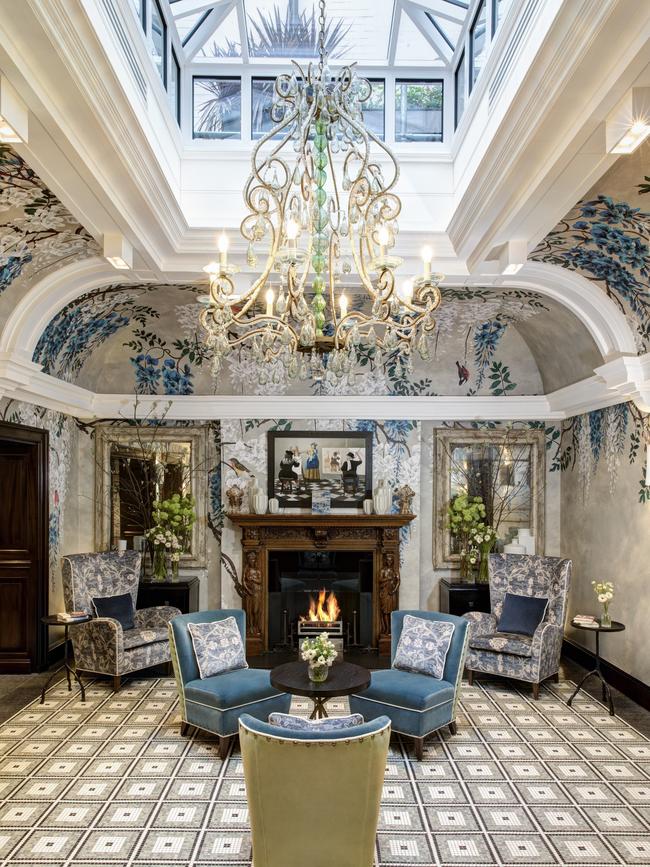
Rocco Forte House is on the Via del Babuino just off the Piazza di Spagna, more or less equidistant from the Hotel de la Ville and RFH’s flagship in Italy, the glorious Hotel De Russie.
Designed by Roman architect Tommaso Ziffer, who worked on both hotels (and counts Valentino Garavani among his clients), the five two-bedroom flats are modern and colourful, and share a lush roof garden with views up to Santa Trinità dei Monti.
“We’re focused now on helping to create more structured, concrete brand standards for what the Houses will offer in terms of operations, which then of course helps us project future potential markets,” he says.
Sites in Florence and Milan are both in the works; these will be larger, with between 10 and 15 units each. They’ll have more public spaces – living rooms, perhaps bars – but no formal reception. They’re meant, Charles says, “to feel very homey; a bit the antithesis of the hotels.”
The hotel growth strategy, meanwhile, is manifold.
“The first part is to complete the Italian circuit. We want our guests to be able to travel from, say, Cortina all the way down to Noto. We have Rome, Florence. We have Puglia [Masseria Torre Maizza, a 40-room resort on the Adriatic near Monopoli, which RFH took over in 2019]; we have Palermo and Verdura, our resort in western Sicily.
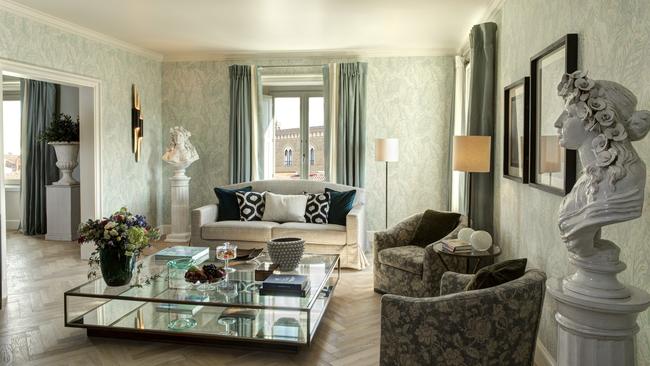
“So we’re confident about the other markets: Naples, Lecce, that whole Noto-Baroque Valley area of Sicily.” Then there’s expansion planned across Europe: “We’re looking at Barcelona, Zurich, and Amsterdam, the gateway cities we’re not yet present in, so as not to be considered an exclusively Italo-centric brand. But also more leisure-oriented properties. They fit us very well.”
In interviews, Irene is the most retiring and softest-spoken of her siblings. Which is not to say she’s not a force to be reckoned with: she made Rocco Forte Hotels wellness one of the few hotel-branded offerings that commands serious respect outside the industry as well as within it.
Having worked across the company, in various departments (at one point winning a £250,000 government grant for a career progress-tracking app she developed), she moved over to spa development in 2014. Until 2020, she oversaw every aspect: design, programming, training and operations.
Today, her full-time job is her eponymous skin and body care line. Originally called Forte Organics when created for the hotels, it was rebranded Irene Forte Skincare in 2019; it took her three years to create and launch it while doing her day job at RFH.
“It was crucial that it be a product that looked, and was, luxurious, and actually results driven, but still as clean as possible,” she tells me.
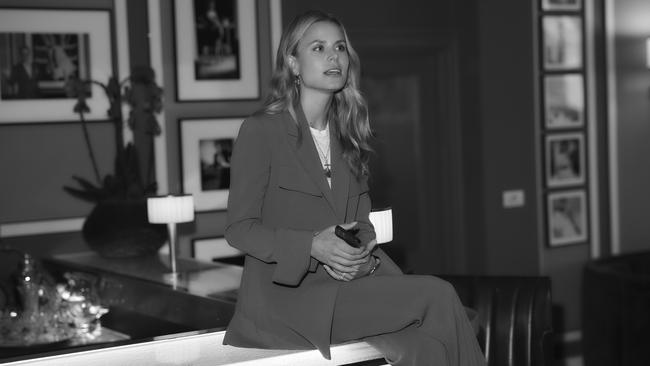
It has won multiple accolades, not least for the rigour with which it’s clinically trialled for efficacy – a rarity among “natural” beauty lines (around 20 per cent of the ingredients come from the organic farms at Verdura, in Sicily).
These days it’s stocked by some 50 online and bricks-and-mortar retailers worldwide, from Net-a-Porter to Liberty in London, Bergdorf Goodman in New York and Luisa Via Roma in Italy.
In 2021, she launched the first Irene Forte Spa at Palermo’s Villa Igiea; a second debuted at Hotel de La Ville, in Rome, in June; more are slated, at Masseria Torre Maizza and, potentially, at the Rocco Forte House in Florence when it opens.
Irene is as serious about sustainability as she is about the clinical quality control. That the global beauty industry produces an estimated 120 billion units of packaging every year, much of it non-recyclable, underscores the urgency of innovation, so recyclability was the focus of a full 18 months’ R&D.
The result is elegant post-industrial recycled glass bottles, with bio-based plastic refillables inside. By June, she told me recently, the e-commerce demand for refillable orders already matched that for new products.
She has legitimate plaudits to show for the work: last January, Irene Forte Skincare was awarded B Corp certification, garnering a score of 99.5 on the B Impact Assessment (the pass rate is 80).
She’s proud of the result, but isn’t resting on her laurels: here newest role is co-steering the RFH group committee on establishing a consolidated, 360-degree approach to sustainability across all its hotels’ operations.
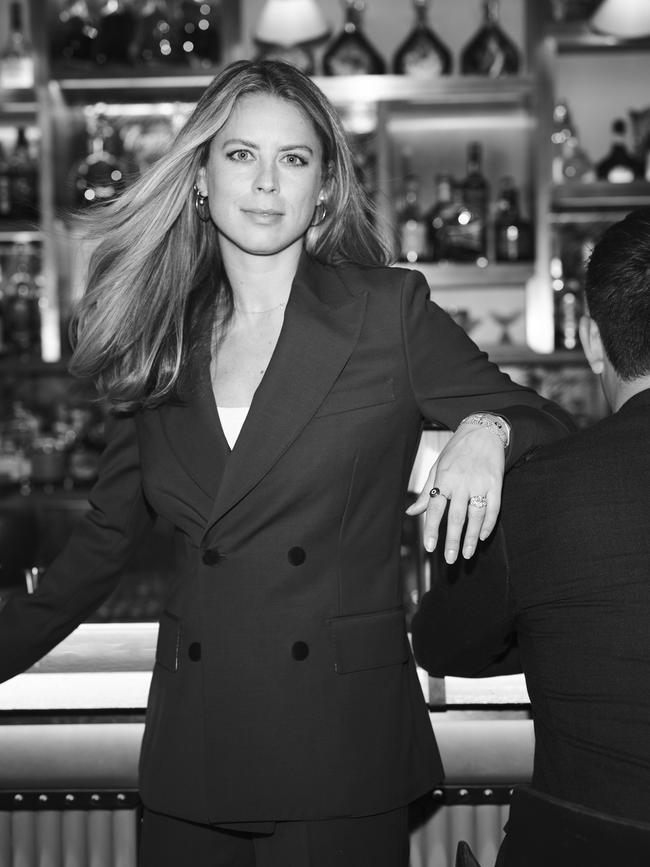
“It’s a huge project,” she admits – so many discrete properties, long following their own protocols – “but very necessary.” For his part, Charles is already on to Phase Two plans for the Houses: opening in cities where Rocco Forte doesn’t yet have brand presence: “It’s a good way to gain footholds where the barriers to entry are more difficult.”
In Lisbon, for instance, he’s looking at a hybrid model – 14 rooms, with 15 serviced apartments – “With that you cover your fixed costs, which are always very high with luxury hotels.”
And the next frontier for the hotels? “The US. Thirty-five per cent of our business comes from North America, and we’d like to have a showcase property on the east coast.” New York, Miami, and Palm Beach are top of the list – hard markets to crack, he admits.
All the forward momentum evinces another family quality the three seem to have collectively inherited, one that both their grandfather and great-grandfather famously inculcated at home and insisted on in the business: an ironclad work ethic.
“We are all in the hotels, all the time, working, observing, collaborating,” Charles told me the first time I met him – aged 26, new to his role, already preternaturally composed. “This isn’t some hobby we dabble in; it’s our bread and butter.”

To join the conversation, please log in. Don't have an account? Register
Join the conversation, you are commenting as Logout